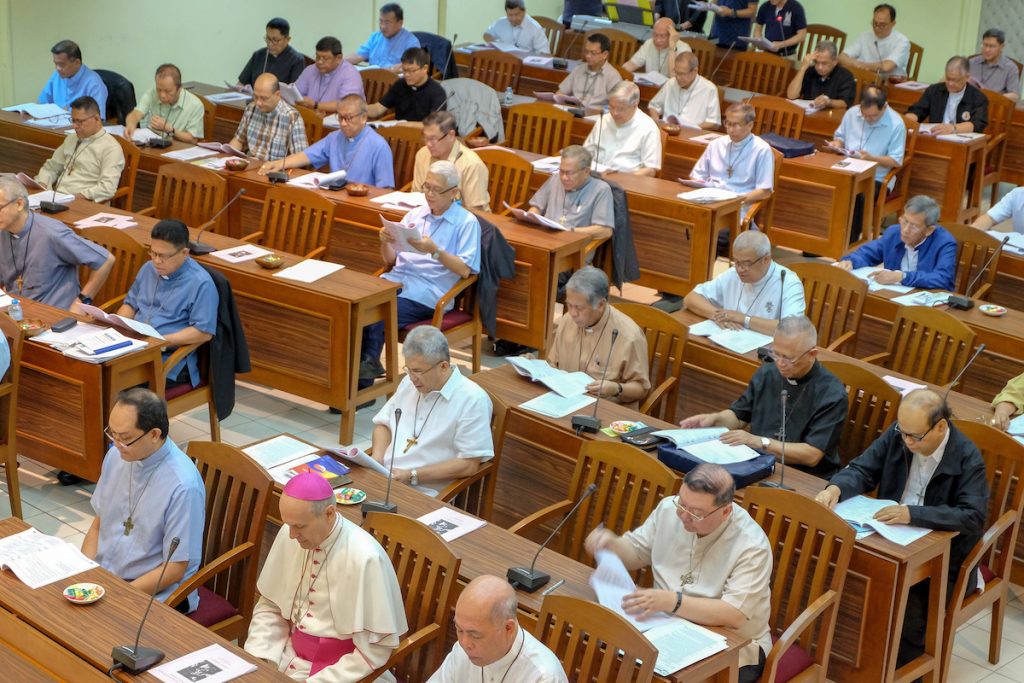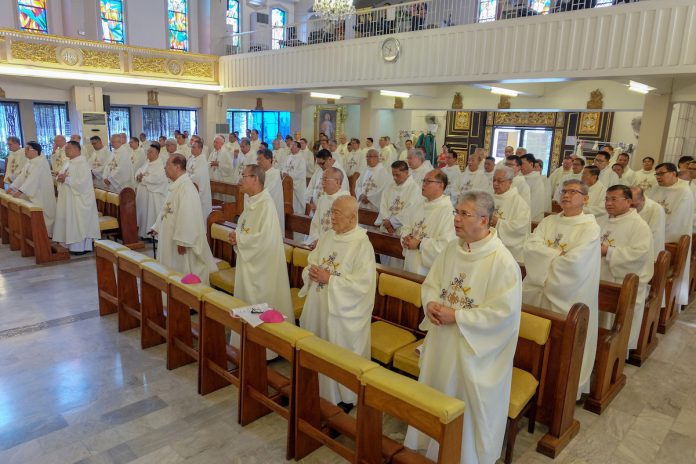The Catholic Bishops’ Conference of the Philippines has decided to create an office that will look into cases of sexual abuse allegedly committed by members of the clergy.
The creation of the Office on the Protection of Minors was proposed during one of the preparatory meetings held this week ahead of the bishops’ 120th Plenary Assembly on Jan. 25.
Father Marvin Mejia, secretary general of the conference, said a chairman who will be heading the office will be elected during the assembly.
“Let it be clear that the conference is addressing [issues of clergy sex abuse],” said Father Mejia.
The new office will “help or assist” dioceses where a member of the clergy might be accused of sexual abuse.
Father Mejia said legal and church law experts will be provided by the new office to assist, but authority and responsibility to address the issue will still lie with the local bishop.
“[The authority] is still with the individual local churches if there are accusations,” said the priest.
Easy access for people
In December last year, four dioceses in Mindanao, including the Archdiocese of Davao, also in the southern Philippines, created their own Office of the Protection of Minors.
The dioceses said the “main reason” of the creation of the office was to give people in the region a proper outlet to address related concerns.
“In this way we are giving our people more access and opportunities whereby they can easily bring their concerns on issues regarding the protection of minors,” read a joint statement from the dioceses of Digos, Tagum, Mati, and the Archdiocese of Davao.
The statement added that the establishment of the office “clearly reminds us that it is an integral mission of the Church to ensure the safety of minors and vulnerable people.”
Last year, Pope Francis issued a directive in his Apostolic Letter “Vos Estis Lux Mundi” to establish within a year “more public, stable, and easily accessible systems for submission of reports” to the Church.
Earlier, Father Jerome Secillano, executive secretary of the public affairs body of the bishops’ conference, said while there are cases of clergy sexual abuse in the country, it is not as prevalent and these are being addressed.
“Priests are investigated and some are sent to a facility for reformation, while others are either suspended or defrocked,” said Father Secillano.

500 years of faith and other matters
The country’s Catholic bishops will gather in Manila from Jan. 25 to 27 for their plenary assembly, where they are expected to discuss preparations for the 500th anniversary of the arrival of Christianity in the country in 2021.
They will also be voting on the elevation of some churches to minor basilicas or national shrines.
“We need to discuss a lot of things during the plenary, especially church matters,” said Father Mejia.
Among the possible issues that will be tackled during the meeting are the Church’s mission to China, the prevalence of suicide cases in the country, and threats to the environment.
Other issues that were discussed during the preparatory meetings earlier this week include the “red tagging” of church groups and individuals by the military and the government’s “war on drugs.”
Father Mejia said the objective of the discussions was for the bishops to understand the issues.
On Jan. 26, the bishops will hold a “despedida,” or farewell party, for Cardinal Luis Antonio Tagle of Manila, who will soon be leaving for the Vatican to take up the post of Prefect of the Congregation for the Evangelization of Peoples.
Viewed as the highest decision-making body of the Philippine bishops’ conference, the Plenary Assembly meets in regular session twice a year, in January and in July.









